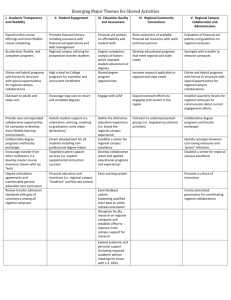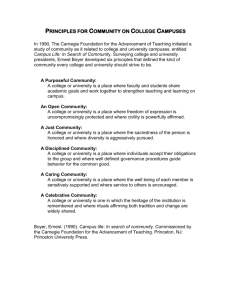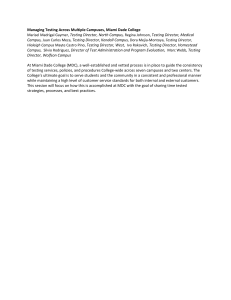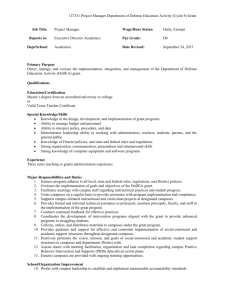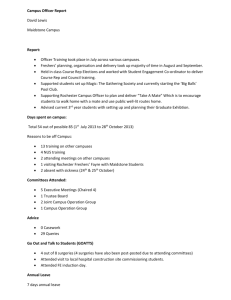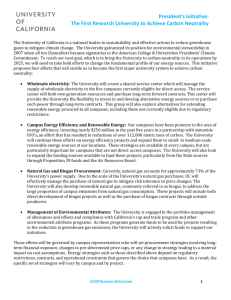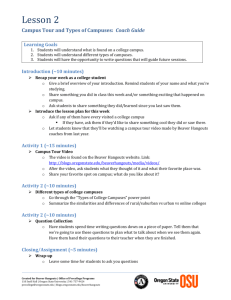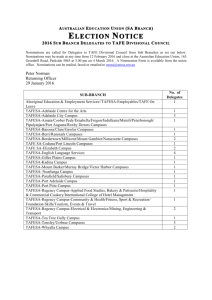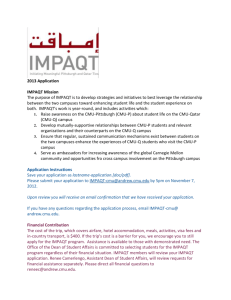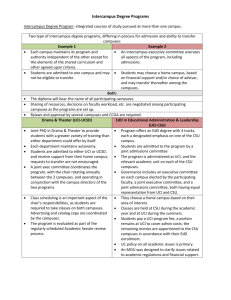Attainment
advertisement
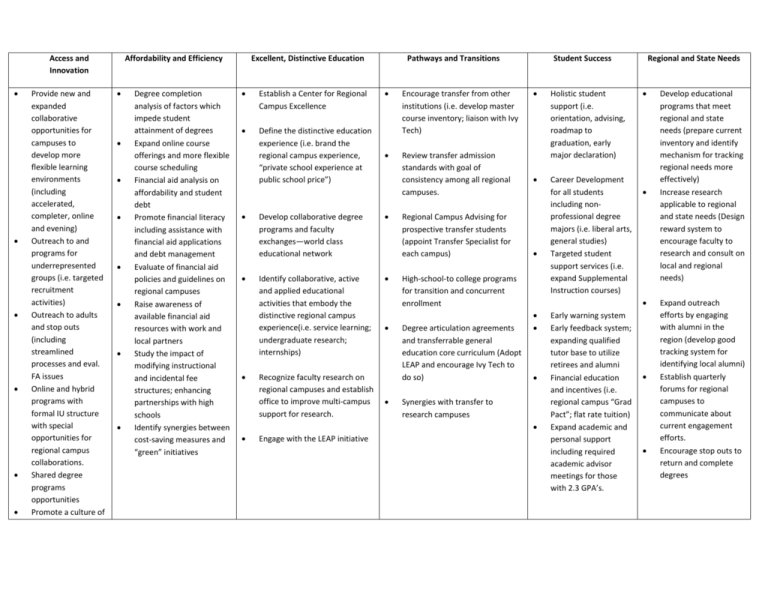
Access and Innovation Provide new and expanded collaborative opportunities for campuses to develop more flexible learning environments (including accelerated, completer, online and evening) Outreach to and programs for underrepresented groups (i.e. targeted recruitment activities) Outreach to adults and stop outs (including streamlined processes and eval. FA issues Online and hybrid programs with formal IU structure with special opportunities for regional campus collaborations. Shared degree programs opportunities Promote a culture of Affordability and Efficiency Degree completion analysis of factors which impede student attainment of degrees Expand online course offerings and more flexible course scheduling Financial aid analysis on affordability and student debt Promote financial literacy including assistance with financial aid applications and debt management Evaluate of financial aid policies and guidelines on regional campuses Raise awareness of available financial aid resources with work and local partners Study the impact of modifying instructional and incidental fee structures; enhancing partnerships with high schools Identify synergies between cost-saving measures and “green” initiatives Excellent, Distinctive Education Establish a Center for Regional Campus Excellence Define the distinctive education experience (i.e. brand the regional campus experience, “private school experience at public school price”) Pathways and Transitions Encourage transfer from other institutions (i.e. develop master course inventory; liaison with Ivy Tech) Review transfer admission standards with goal of consistency among all regional campuses. Develop collaborative degree programs and faculty exchanges—world class educational network Identify collaborative, active and applied educational activities that embody the distinctive regional campus experience(i.e. service learning; undergraduate research; internships) Recognize faculty research on regional campuses and establish office to improve multi-campus support for research. Regional Campus Advising for prospective transfer students (appoint Transfer Specialist for each campus) Student Success Holistic student support (i.e. orientation, advising, roadmap to graduation, early major declaration) Career Development for all students including nonprofessional degree majors (i.e. liberal arts, general studies) Targeted student support services (i.e. expand Supplemental Instruction courses) High-school-to college programs for transition and concurrent enrollment Degree articulation agreements and transferrable general education core curriculum (Adopt LEAP and encourage Ivy Tech to do so) Engage with the LEAP initiative Synergies with transfer to research campuses Regional and State Needs Early warning system Early feedback system; expanding qualified tutor base to utilize retirees and alumni Financial education and incentives (i.e. regional campus “Grad Pact”; flat rate tuition) Expand academic and personal support including required academic advisor meetings for those with 2.3 GPA’s. Develop educational programs that meet regional and state needs (prepare current inventory and identify mechanism for tracking regional needs more effectively) Increase research applicable to regional and state needs (Design reward system to encourage faculty to research and consult on local and regional needs) Expand outreach efforts by engaging with alumni in the region (develop good tracking system for identifying local alumni) Establish quarterly forums for regional campuses to communicate about current engagement efforts. Encourage stop outs to return and complete degrees innovation Create Centralized Governance for Coordinating regional collaborations Blue Print Interim Reports—Common Themes by Priority Action Teams
